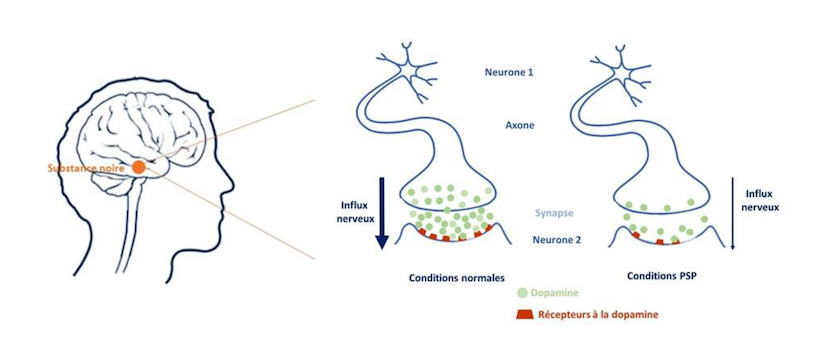From a biological point of view, there are malfunctions in the transmission of information between neurons due to a deficit of neurotransmitters, a molecule that allows the transmission of nerve impulses between two neurons and that are released into the synapse.

The largest deficiency observed in 90% of patients was for dopamine and its receptors in the black matter. In about 40% of patients a decrease in the effect of acetylcholine, another neurotransmitter is observed in particular in the basal ganglia, pallidum and brainstem.
At the Paris Brain Institute
Dr. Isabelle LEBER, Neurologist, Coordinator of the Reference Centre for Progressive Supranuclear Paralysis of the Pitié-Salpêtrière Hospital and researcher in the team of Alexandra DURR and Giovanni STEVANIN is seeking to identify causes and better understand the mechanisms of the disease.






